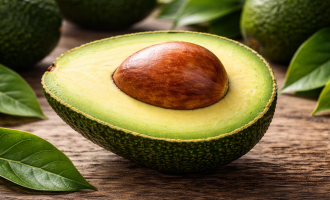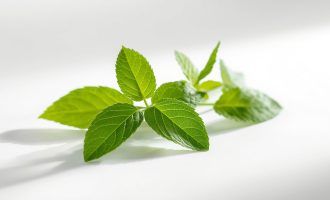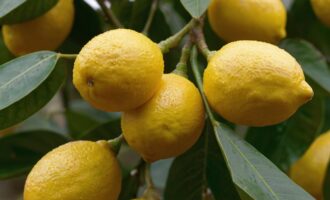Ashwagandha is a medicinal plant from the Withania genus, best known as Withania somnifera. In Ayurveda it is called the “Indian ginseng” or “winter cherry.” The plant belongs to the nightshade family (Solanaceae), which also includes tomato, eggplant, and potato. In nature, ashwagandha grows in warm and dry climates: in India, Nepal, Pakistan, Middle Eastern countries, and some parts of Africa.

To obtain ashwagandha extract, mainly the roots are used, and less often the leaves. The plant is cultivated on plantations, with seedlings planted in light, well-drained soil under stable temperatures. Roots are usually harvested 150–180 days after planting, when the plant has fully accumulated bioactive substances. After harvesting, the raw material is washed, gently dried, and ground. Then it undergoes extraction (water-alcohol or another mild method), is concentrated, and standardized by the content of the main active compounds – withanolides. This is the form most commonly used in dietary supplements and preventive/therapeutic products.
Nutritional Value and Composition of Ashwagandha Extract (per 100 g)
Figures may vary depending on the manufacturer and degree of standardization; below are indicative values for a dry extract.
| Component | Amount per 100 g | Comment |
|---|---|---|
| Energy value | 270–320 kcal | depends on carbohydrate content |
| Protein | 3–5 g | plant protein |
| Fat | 0.3–1 g | low content |
| Carbohydrates | 45–60 g | natural sugars and polysaccharides |
| Dietary fiber | 15–25 g | digestive support |
| Withanolides | 2.5–10% | main active compounds |
| Alkaloids (somniferine, etc.) | trace–1% | contribute to the sedative effect |
| Potassium | 300–500 mg | supports heart and vessels |
| Calcium | 20–60 mg | bone tissue |
| Iron | 3–10 mg | hematopoiesis |
| Magnesium | 20–40 mg | nervous system |
| Zinc | 1–3 mg | reproductive system |
| Vitamin C | 3–7 mg | antioxidant support |
| Phenolic compounds | trace | antioxidants |
Benefits of Ashwagandha and Why It Is Taken
The benefits of ashwagandha are primarily linked to its adaptogenic effect. The extract helps the body cope with stress, reduces anxiety and fatigue, and supports the nervous system and sleep. Thanks to withanolides and antioxidants, the plant affects several systems at once:
- Nervous system: helps lower cortisol and anxiety, improves sleep quality.
- Hormonal balance: supports adrenal and thyroid function.
- Immunity: has a mild immunomodulatory effect.
- Antioxidant protection: neutralizes free radicals and may slow age-related changes.
- Physical performance: studies show it may improve strength and endurance.
Ashwagandha for Women
Ashwagandha for women is valued for its ability to gently support the nervous and hormonal systems. It is recommended for chronic fatigue, emotional burnout, increased anxiety, sleep disturbances, and during periods of hormonal changes.
- may reduce stress and PMS symptoms;
- supports libido and overall energy levels;
- positively affects sleep quality and mood;
- antioxidant effect is beneficial for the skin and in fighting inflammation.
Ashwagandha for Men
Ashwagandha for men is of interest mainly as a natural aid for stress resilience, physical strength, and reproductive health.
- some studies reported improved testosterone levels and semen parameters with ashwagandha intake;
- better endurance and performance are useful for training;
- reduced stress indirectly improves sexual function;
- the adaptogenic effect helps under high physical or emotional load.
How to Take Ashwagandha Extract Properly
Typical dosages depend on standardization (withanolide percentage) and form. Many manufacturers indicate 300–600 mg of standardized extract 1–2 times daily with food. In several studies, 300 mg twice daily was used.
- start with a lower dose to assess individual tolerance;
- it is better to take in courses of 4–8 weeks;
- preferably take in the first half of the day if you notice a light tonic effect;
- during pregnancy, breastfeeding, or when taking hormonal/sedative drugs – consult a doctor first.
Scientific Studies on Ashwagandha
Interest in ashwagandha extract is explained by the fact that many of its effects have been confirmed in clinical and observational studies.
1. Stress and Anxiety
Who conducted: groups of Indian researchers (randomized controlled trials).
When: 2000s – early 2010s.
Goal: to evaluate the effect of standardized ashwagandha extract on stress level and cortisol.
Results: participants who took ashwagandha showed a statistically significant reduction in subjective stress and cortisol compared to placebo.
Conclusion: ashwagandha can be considered a safe adaptogen for chronic stress.
2. Strength and Endurance
Who conducted: sports and nutrition centers in India and the USA.
Goal: to check whether ashwagandha extract increases muscle strength and recovery in trained men.
Results: with 300–600 mg of extract, participants showed strength gains (e.g. bench press), slight muscle mass increase, and faster recovery.
Conclusion: ashwagandha can be a useful supplement for both men and women who work out.
3. Male Reproductive Health
Who conducted: reproductive health clinics (India).
Goal: to evaluate ashwagandha’s effect on semen quality and hormone profile in men with subfertility.
Results: after several weeks, motility of sperm and testosterone levels improved in part of the participants.
Conclusion: ashwagandha may be a supportive option in functional male infertility.
4. Neurocognitive Functions
Goal: to study ashwagandha’s effect on memory, attention, and sleep quality.
Results: adults with mild cognitive complaints noted better sleep and some improvement in cognitive measures.
Conclusion: the adaptogenic and neuroprotective action of ashwagandha may benefit people with high mental workload.
Frequently Asked Questions About Ashwagandha Extract
What is ashwagandha extract and how is it different from plain root powder?
Ashwagandha extract is a concentrated form of Withania somnifera standardized for withanolides. Compared to plain root powder, it provides a more predictable effect at a lower dose.
What are the main health benefits of ashwagandha?
Ashwagandha works as an adaptogen: it reduces the impact of stress, supports the nervous system and sleep, helps maintain hormonal balance, and may improve physical performance.
How do the benefits of ashwagandha for women differ from those for men?
Women often take it for stress relief, better sleep, and during hormonal changes, while men use it more for testosterone support, endurance, and reproductive function.
How should I take ashwagandha extract and how long should a course last?
Most often 300–600 mg of standardized extract is taken 1–2 times daily with food. A typical course lasts 4–8 weeks, after which a break is recommended.
Are there any contraindications to ashwagandha?
Yes. Pregnancy, breastfeeding, individual intolerance, certain thyroid conditions, and taking hormonal or sedative drugs are reasons to consult a doctor first.
Can I combine ashwagandha with other supplements and adaptogens?
In most cases yes, but it’s better not to take several strong adaptogens at once without a plan, so as not to overload the nervous and endocrine systems.
How soon will I feel the effect?
Many people notice changes in stress and sleep after 1–2 weeks of regular use, while a more pronounced effect appears by week 4.
Is ashwagandha suitable for people with high stress and mental workload?
Yes, its adaptogenic and neuroprotective actions were specifically studied in people with chronic stress and high cognitive demands.







